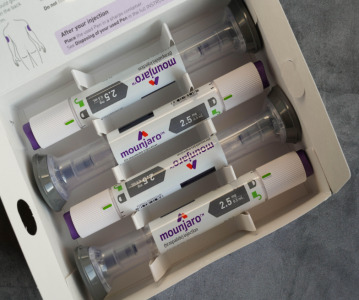EC approves extended indication for Amgen's Kyprolis

Head-to-head Phase III trial demonstrated superiority of Kyprolis and dexamethasone over Velcade and dexamethasone in patients with relapsed multiple myeloma.
Amgen has announced that the European Commission (EC) has approved a variation to the marketing authorisation for Kyprolis (carfilzomib) to include use in combination with dexamethasone alone for adult patients with multiple myeloma who have received at least one prior therapy. The extended indication marks the second approval for Kyprolis by the EC in less than a year.
"In the Phase III head-to-head trial, Kyprolis in combination with dexamethasone doubled the time patients lived without their cancer progressing, as well as the rates of complete response compared to bortezomib and dexamethasone," said Sean E. Harper, executive vice president of Research and Development at Amgen. "Kyprolis-based regimens have now shown superiority over two former standard-of-care treatment options for relapsed multiple myeloma patients, reinforcing Kyprolis' place as a foundational therapy in this patient population."
The EC approved the extended indication for Kyprolis based on data from the Phase III head-to-head ENDEAVOR trial in which patients with multiple myeloma treated with Kyprolis plus dexamethasone (Kd) achieved superior progression-free survival (PFS) of 18.7 months compared to 9.4 months in those receiving bortezomib plus dexamethasone (Vd). Kd also demonstrated improvement over Vd for secondary endpoints, including rates of complete response or better, which were double in patients treated with Kd compared to those treated with Vd. The tolerability profile was similar in the two arms, however patients treated with Kd experienced a significantly lower rate of grade 2 or higher neuropathy events than those treated with Vd, a frequent dose-limiting toxicity in patients receiving bortezomib. The most common adverse reactions that occurred in greater than 20% of patients treated with Kyprolis were anemia, fatigue, diarrhea, thrombocytopenia, nausea, pyrexia, dyspnea, respiratory tract infection, cough and peripheral edema.
Related News
-
News The next 15 drugs up for negotiation with Medicare include several blockbusters
By now, everyone is quite familiar with the drug price negotiations taking place between drug companies and the Centres for Medicare & Medicaid Services (CMS) in the USA as part of measures being taken to reduce the cost of drugs for patients, to make ... -
News PSCI Welcomes Delpharm, Samsung Biologics, and Suven as First Supplier Partners
The pharmaceutical industry continues to evolve with an increasing focus on responsible sourcing, sustainability, and collaboration across the supply chain. Under a new model to recognise suppliers within the pharmaceutical and healthcare industry that... -
News Drug prices agreed upon as part of the US Inflation Reduction Act
The Inflation Reduction Act brought into constitution by the Biden administation in 2022, which proposed a drug price negotiation between the government and pharmaceutical companies, has reached it's first agreement. -
News Eisai Alzheimer’s drug authorised in UK but still faces obstacles
In partnership with BioArctic AB, pharmaceutical company Eisai has been granted Marketing Authorisation by the Medicines and Healthcare products Regulatory Agency (MHRA) for its Alzheimer’s disease drug product Leqembi. -
News Eli Lilly's weight loss drugs removed from the FDA's shortage list
The US FDA have recently updated their drug shortage list. The recently released list shows that all dosage forms of Eli Lilly's weight-loss drug Zepbound and their diabetes drug Mounjaro are now available. -
News Global advancements in the diagnosis and treatment of rare diseases: Rare Disease Day 2024
Rare Diseases Day is celebrated on the 29th February 2024 and represents the plight of rare disease patients to gain diagnosis and access to suitable treatment. -
News Pharmaceutical industry supports COP28 health stance in joint statement
As COP28 takes place over this week in Dubai, UAE, several bodies in the pharmaceutical and health industries have come together to announce support of key movements in sustainability in the sector, and to recognise sustainability as a health issue.&nb... -
News Biden backs Cold-War measures to shore-up medical supply chains
In a recent strategy to combat rising inflation and the cost of living crisis, President Joe Biden has invoked a Cold War-era act to increase investment in a selection of medicines and supplies.
Recently Visited
Position your company at the heart of the global Pharma industry with a CPHI Online membership
-
Your products and solutions visible to thousands of visitors within the largest Pharma marketplace
-
Generate high-quality, engaged leads for your business, all year round
-
Promote your business as the industry’s thought-leader by hosting your reports, brochures and videos within your profile
-
Your company’s profile boosted at all participating CPHI events
-
An easy-to-use platform with a detailed dashboard showing your leads and performance



.png)



